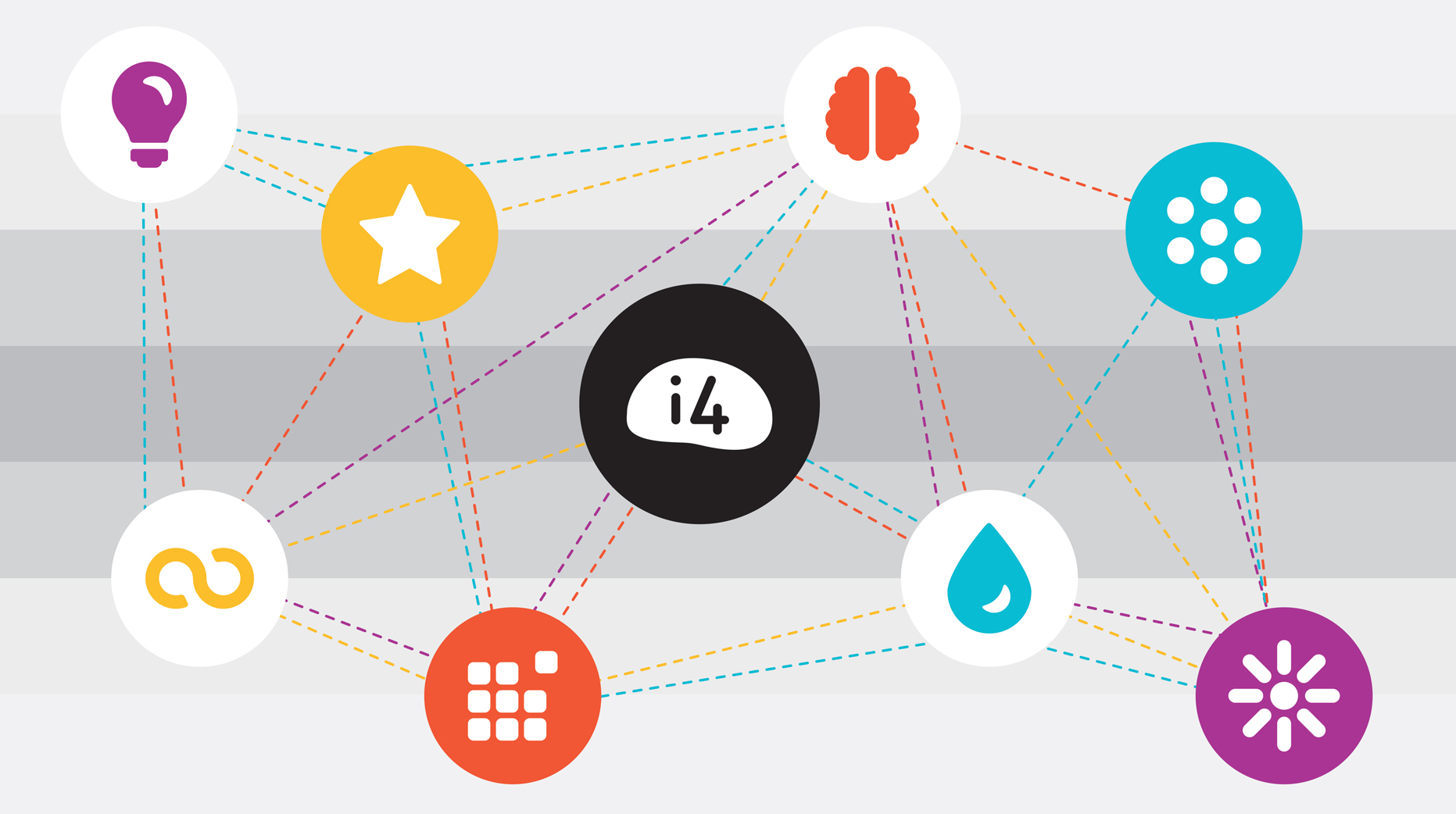Developing Leadership Skills: Key to Successful Professional Integration in 2024 and Beyond
Developing leadership skills has become essential for professionals across all careers, not just those in high-level management positions. In a competitive and constantly evolving job market, companies are looking for employees who not only possess technical knowledge but also leadership abilities that enable them to manage teams, make strategic decisions and guide organisations toward success. This article explores the importance of developing these skills in professionals from various disciplines and how this can significantly improve their integration into the job market.
Defining Leadership
Leadership is defined as the ability to influence and guide others toward achieving common goals. A good leader stands out not only for their ability to direct but also for their capacity to inspire, motivate and support their team. These skills are increasingly valued in the professional environment, where effective leadership can make the difference between the success and failure of a project or organisation.
The Importance of Leadership in Professional Integration
Research consistently shows that leadership skills are fundamental to professional integration and career advancement. According to a study by the Society for Human Resource Management (SHRM), 77% of employers consider soft skills, including leadership, to be as important as technical skills for success at work (SHRM, 2019). Additionally, a Deloitte report highlights that companies investing in leadership development are 12% more effective in managing change and 25% more successful in meeting performance goals (Deloitte, 2018).
In 2024, the importance of leadership skills has become even more pronounced as organisations grapple with the rapid integration of artificial intelligence (AI) in the workplace. While AI has transformed many aspects of work, it has also highlighted the critical role that uniquely human skills play, skills that AI cannot replicate. According to LinkedIn's latest global inventory of the most in-demand skills, soft skills such as communication, empathy and adaptability have surged in importance.
This trend is further supported by a recent LinkedIn survey, which found that 9 out of 10 global executives agree that soft skills, also known as "human" or "durable" skills, are more important than ever. Communication, in particular, ranks No. 1 on the 2024 list of most in-demand skills, underscoring the need for leaders to communicate clearly, compassionately and empathetically with their teams.
As the workplace continues to evolve, adaptability has also become a critical skill, enabling teams and organisations to remain steady and drive impact in an increasingly fast-paced environment (LinkedIn, 2024).
Effects of Leadership on Team and Organisational Management
Effective leadership has a direct impact on team management and organisational success. A skilled leader can:
- Improve Productivity: A good leader knows how to motivate their team, set clear goals and create a work environment that promotes productivity.
- Facilitate Decision-Making: Effective leaders can analyse complex situations and make strategic decisions that benefit the organisation.
- Promote Innovation: By promoting a culture of collaboration and creativity, leaders can inspire their team to propose new ideas and innovative solutions.
- Manage Change: In a constantly changing work environment, leaders are essential for guiding their teams through organisational transitions, minimising resistance and ensuring a quick and effective adaptation.
Strategies for Developing Leadership in Professionals
- Continuous Education: Encourage participation in courses and leadership training programs to strengthen these skills among professionals.
- Mentorship: Establish mentorship programs where less experienced professionals can learn from established leaders within the organisation.
- Practical Experience: Provide opportunities for employees to take on leadership roles in specific projects, allowing them to develop and apply their skills in a real-world environment.
- Constant Feedback: Promote a feedback culture where employees can receive and offer constructive comments on their leadership skills.
Developing leadership skills in professionals from various disciplines is crucial for improving their integration and success in the job market. As organisations increasingly value these skills, investing in leadership development benefits not only employees but also strengthens the organisation’s ability to face challenges and achieve its goals. With the right support and the opportunity to develop these capabilities, professionals can become effective leaders, enhancing their career trajectory and contributing to organisational success in an era where human skills are more critical than ever.
Bibliography:
- (2018). Global Human Capital Trends. Retrieved from Deloitte
- (2021). Global Leadership Forecast 2021. Retrieved from DDI
- LinkedIn Learning. (2020). 2020 Workplace Learning Report. Retrieved from LinkedIn
- (2024). The Most In-Demand Skills for 2024.
- (2020). Global CEO Survey. Retrieved from PwC
- (2019). The Skills Gap 2019. Retrieved from SHRM
- i4 Neuroleader (353)
- Leadership & Culture (325)
- Brain Health & Wellbeing (202)
- Innovation (97)
- Performance (85)
- Our News (80)
- Collaboration (68)
- Agility (53)
- Practitioner Stories (44)
- In The Press (36)
- Make Me A Leader (33)
- Balance (31)
- Integration (30)
- Imagination (29)
- Awareness (23)
- Brain-Friendly Channel (22)
- Communication (22)
- Curiosity (21)
- Inspiration (19)
- Intuition (19)
- Attitude (17)
- Courage (16)
- Adaptability (14)
- Case Studies (14)
- Drive (14)
- Generosity (13)
- Brain-Friendly Leadership (11)
- Ethics (9)
- Mental Readiness (9)
- Influence (8)
- Retreat (6)
- Brain-Friendly Leadership (1)
- Oracle Cards (1)
- 1 April 2025 (1)
- 1 March 2025 (9)
- 1 February 2025 (3)
- 1 September 2024 (4)
- 1 July 2024 (2)
- 1 June 2024 (6)
- 1 May 2024 (2)
- 1 April 2024 (3)
- 1 March 2024 (1)
- 1 November 2023 (1)
- 1 August 2023 (1)
- 1 July 2023 (2)
- 1 June 2023 (2)
- 1 May 2023 (4)
- 1 April 2023 (2)
- 1 March 2023 (7)
- 1 February 2023 (4)
- 1 January 2023 (1)
- 1 September 2022 (1)
- 1 May 2022 (3)
- 1 April 2022 (1)
- 1 March 2022 (5)
- 1 February 2022 (4)
- 1 January 2022 (4)
- 1 December 2021 (2)
- 1 November 2021 (4)
- 1 October 2021 (3)
- 1 September 2021 (6)
- 1 August 2021 (1)
- 1 April 2021 (1)
- 1 December 2020 (2)
- 1 November 2020 (1)
- 1 September 2020 (1)
- 1 August 2020 (1)
- 1 July 2020 (3)
- 1 June 2020 (4)
- 1 May 2020 (3)
- 1 April 2020 (4)
- 1 March 2020 (6)
- 1 February 2020 (4)
- 1 January 2020 (2)
- 1 December 2019 (3)
- 1 November 2019 (3)
- 1 October 2019 (5)
- 1 September 2019 (4)
- 1 August 2019 (4)
- 1 July 2019 (4)
- 1 June 2019 (5)
- 1 May 2019 (9)
- 1 April 2019 (9)
- 1 March 2019 (8)
- 1 February 2019 (7)
- 1 January 2019 (8)
- 1 December 2018 (5)
- 1 November 2018 (10)
- 1 October 2018 (16)
- 1 September 2018 (9)
- 1 August 2018 (10)
- 1 July 2018 (9)
- 1 June 2018 (8)
- 1 May 2018 (9)
- 1 April 2018 (9)
- 1 March 2018 (9)
- 1 February 2018 (8)
- 1 January 2018 (8)
- 1 December 2017 (6)
- 1 November 2017 (9)
- 1 October 2017 (9)
- 1 September 2017 (8)
- 1 August 2017 (10)
- 1 July 2017 (8)
- 1 June 2017 (8)
- 1 May 2017 (9)
- 1 April 2017 (8)
- 1 March 2017 (6)
- 1 January 2017 (3)
- 1 December 2016 (4)
- 1 November 2016 (5)
- 1 October 2016 (4)
- 1 September 2016 (2)
- 1 August 2016 (4)
- 1 July 2016 (4)
- 1 June 2016 (2)
- 1 May 2016 (3)
- 1 April 2016 (3)
- 1 March 2016 (7)
- 1 February 2016 (2)
- 1 January 2016 (5)
- 1 December 2015 (2)
- 1 November 2015 (2)
- 1 October 2015 (4)
- 1 September 2015 (2)
- 1 August 2015 (2)
- 1 July 2015 (1)
- 1 June 2015 (3)
- 1 May 2015 (4)
- 1 April 2015 (5)
- 1 March 2015 (3)
- 1 February 2015 (3)
- 1 January 2015 (3)
- 1 December 2014 (3)
- 1 November 2014 (3)
- 1 October 2014 (3)
- 1 September 2014 (5)
- 1 August 2014 (4)
- 1 July 2014 (5)
- 1 June 2014 (3)
- 1 May 2014 (1)
- 1 March 2014 (1)
- 1 December 2013 (2)
- 1 November 2013 (1)
- 1 July 2013 (1)
- 1 June 2013 (1)
- 1 May 2013 (3)
- 1 April 2013 (1)
- 1 March 2013 (2)
- 1 February 2013 (1)
- 1 January 2013 (2)
- 1 November 2012 (1)
- 1 October 2012 (1)
- 1 September 2012 (1)
- 1 August 2012 (2)
- 1 July 2012 (1)
- 1 June 2012 (1)
- 1 May 2012 (2)
- 1 April 2012 (1)
- 1 February 2012 (1)
- 1 January 2012 (1)
- 1 November 2011 (1)
- 1 October 2011 (3)
- 1 September 2011 (2)
- 1 July 2011 (1)
- 1 June 2011 (1)
- 1 May 2011 (1)
- 1 April 2011 (1)
- 1 March 2011 (1)
- 1 February 2011 (2)
- 1 January 2011 (4)
- 1 December 2010 (4)
- 1 November 2010 (3)
- 1 October 2010 (5)
- 1 September 2010 (4)
- 1 August 2010 (4)
- 1 July 2010 (3)
- 1 June 2010 (4)
- 1 May 2010 (7)
- 1 April 2010 (5)
Subscribe by email
You May Also Like
These Related Stories

Kochie's Business Builders: Neuroscience And Leadership - Are Leaders Born, Or Made?

5 Reasons To Expand Your Knowledge of Neuroleadership




No Comments Yet
Let us know what you think